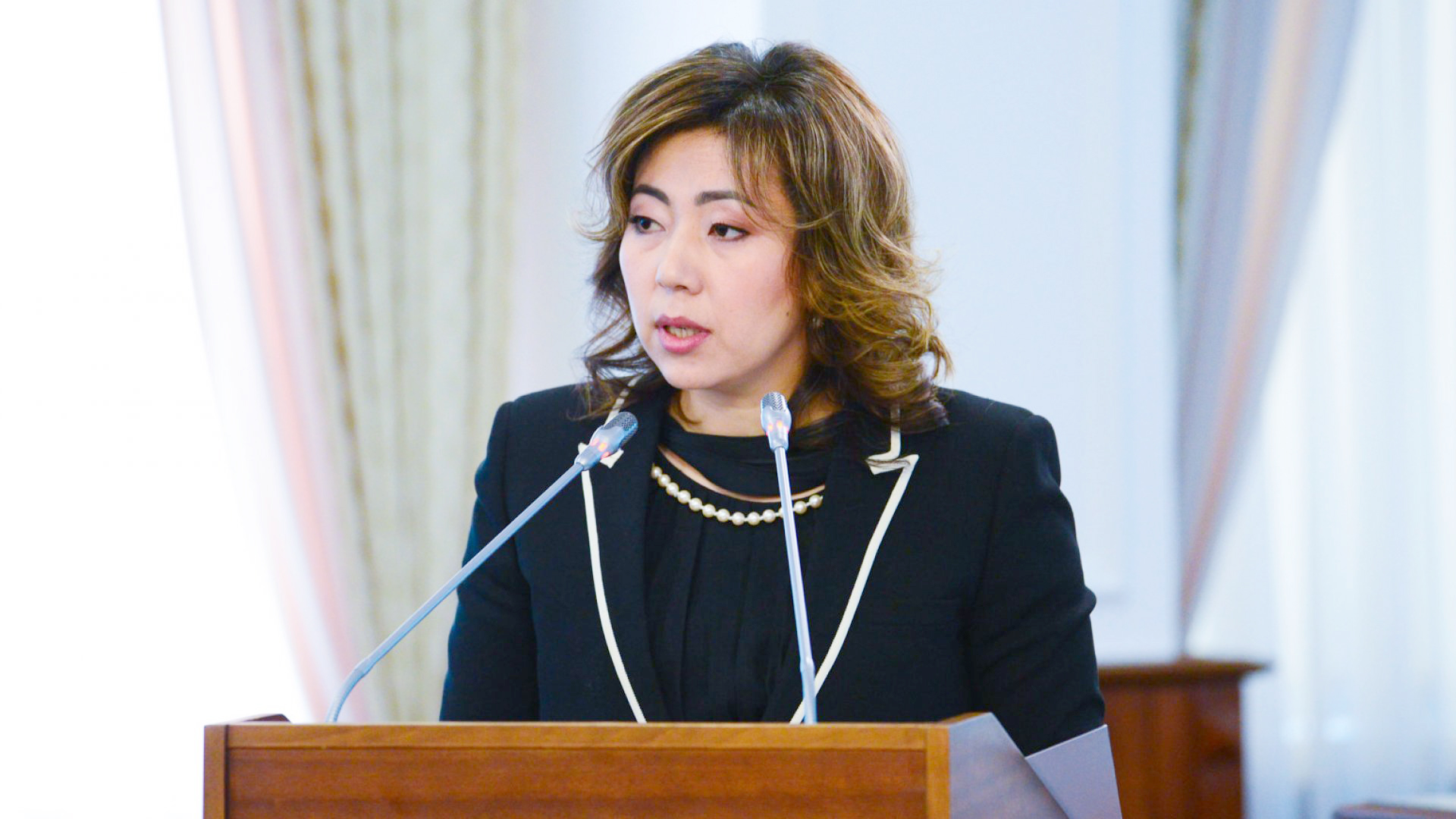02 September 2020, 11:48

At a government session chaired by Prime Minister Askar Mamin, measures to implement the Address of the President Kassym-Jomart Tokayev to the people "Kazakhstan in a New Reality: Time for Action” were discussed. Chair of the Agency for Regulation and Development of the Financial Market Madina Abylkassymova reported on the current situation in the country's financial market.
The Head of State has instructed to provide additional assistance to small and medium-sized businesses through government subsidies of interest rates up to 6% per annum on all existing loans to SMEs in the affected sectors of the economy.
As Abylkassymova noted, in the conditions of the crisis in the economy, the Agency's priority task is to support financing of SMEs and prevent a decrease in access to credit resources. The financial stability and solvency of SMEs are important to ensure the stability of financial institutions themselves.
“During the state of emergency, SMEs on behalf of the Head of State were provided with a deferral of payments on loans and microcredits. From March 16 to June 15, 2020, deferment was granted to 12,455 SMEs, which is 41.5% of the total number of borrowers — SMEs. The amount of deferred payments on loans amounted to 164.8 billion tenge,” the head of the department informed.
Currently, SMEs continue to receive support in the form of deferred payments on loans under a simplified procedure or their restructuring.
From June 16 to Sep. 1, 2020, a deferral of over 3.3 thousand loans for more than 25 billion tenge was approved, 669 borrowers were provided with refinancing of loans. In total, as of July 1 of this year, about 30 thousand SMEs have loans in second-tier banks in the amount of 3.9 trillion tenge. Of these, about 11 thousand SMEs received loans on preferential terms of government programs to support entrepreneurship.
So, within the framework of the Program of Concessional Lending to SMEs, 3,308 loans for 387 billion tenge were issued to replenish working capital. The rest of the borrowers are covered by the Economy of Simple Things and Business Roadmap - 2025 programs.
According to the Agency, about 12.5 thousand borrowers operate in sectors of the economy affected by the state of emergency and quarantine measures.
“In order to implement the instructions of the Head of State, the Agency, together with the Government, will provide state subsidies for interest rates of up to 6% per annum on all existing loans to SMEs in the affected sectors of the economy under the terms of the Business Roadmap - 2025. Subsidies will be provided for a period of 12 months, starting from the moment of announcement the state of emergency, that is, from March 16, 2020,” said the chair of the Agency for Regulation and Development of the Financial Market.
Today, the average rate on loans to SMEs is about 15%, to ensure greater coverage of borrowers, it is proposed to set the maximum rate on subsidized loans at at least 20%. At the same time, the average subsidy rate will be up to 9%.
The Head of State instructed to take measures to reorient the liquidity of second-tier banks to business lending.
According to Abylkassymova, to stimulate lending to entrepreneurs, the Agency had previously introduced temporary regulatory concessions in order to free up capital and liquidity of banks. In particular, until Sep. 30, 2020, the requirements for the calculation of banks' equity capital were relaxed by reducing the risk-weighting of SME loans and syndicated loans. Until July 1, 2021, the requirement for the conservation buffer of the capital of second-tier banks was reduced by 1 pp and the requirements for banks' liquidity ratios were relaxed.
“This made it possible to free up bank capital in the amount of 468 billion tenge and liquidity in the amount of 1.8 trillion tenge. To increase lending to the economy, the Agency together with the National Bank will work out additional measures, including the extension of temporary measures of prudential regulation,” the head of the department emphasized.
At the same time, the Head of State instructed to take additional regulatory measures in terms of increasing the responsibility of credit institutions, as well as differentiating and reducing the marginal interest rates on loans.
Microfinance regulation is important for consumer protection, especially for low-income citizens who do not have access to bank loans.
Since Jan. 1, 2019, credit partnerships, pawnshops and online lending companies have been introduced into the Agency's regulatory perimeter.
On behalf of the Head of State, this year the requirements for equity capital have been increased, qualification requirements for managers and technical requirements for the premises of pawnshops have been established.
“Registration of all non-banking organizations has been carried out. As of September 1 of this year, out of 3.1 thousand microcredit entities, 227 microfinance organizations, 202 credit partnerships and 650 pawnshops were registered. The rest of the microcrediting entities are inactive or do not have capital and are planning to terminate their activities,” Abylkassymova informed.
In general, in order to further reduce the risks of the population's debt burden, the Agency will take measures to increase the responsibility of credit institutions and differentiate the marginal interest rates on loans.
Stay updated about the events of the Prime minister and the Government of Kazakhstan - subscribe to the official Telegram channel
Subscribe